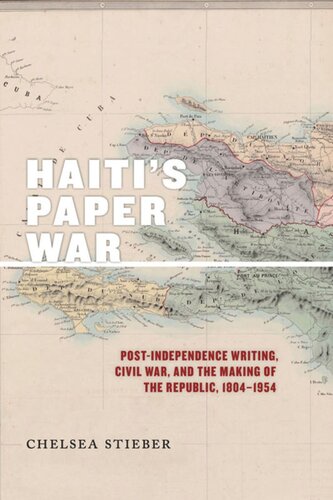

Most ebook files are in PDF format, so you can easily read them using various software such as Foxit Reader or directly on the Google Chrome browser.
Some ebook files are released by publishers in other formats such as .awz, .mobi, .epub, .fb2, etc. You may need to install specific software to read these formats on mobile/PC, such as Calibre.
Please read the tutorial at this link: https://ebookbell.com/faq
We offer FREE conversion to the popular formats you request; however, this may take some time. Therefore, right after payment, please email us, and we will try to provide the service as quickly as possible.
For some exceptional file formats or broken links (if any), please refrain from opening any disputes. Instead, email us first, and we will try to assist within a maximum of 6 hours.
EbookBell Team

5.0
70 reviewsTurns to the written record to re-examine the building blocks of a nation
Picking up where most historians conclude, Chelsea Stieber explores the critical internal challenge to Haiti’s post-independence sovereignty: a civil war between monarchy and republic. What transpired was a war of swords and of pens, waged in newspapers and periodicals, in literature, broadsheets, and fliers. In her analysis of Haitian writing that followed independence, Stieber composes a new literary history of Haiti, that challenges our interpretations of both freedom struggles and the postcolonial. By examining internal dissent during the revolution, Stieber reveals that the very concept of freedom was itself hotly contested in the public sphere, and it was this inherent tension that became the central battleground for the guerre de plume—the paper war—that vied to shape public sentiment and the very idea of Haiti.
Stieber’s reading of post-independence Haitian writing reveals key insights into the nature of literature, its relation to freedom and politics, and how fraught and politically loaded the concepts of “literature” and “civilization” really are. The competing ideas of liberté, writing, and civilization at work within postcolonial Haiti have consequences for the way we think about Haiti’s role—as an idea and a discursive interlocutor—in the elaboration of black radicalism and black Atlantic, anticolonial, and decolonial thought. In so doing, Stieber reorders our previously homogeneous view of Haiti, teasing out warring conceptions of the new nation that continued to play out deep into the twentieth century.